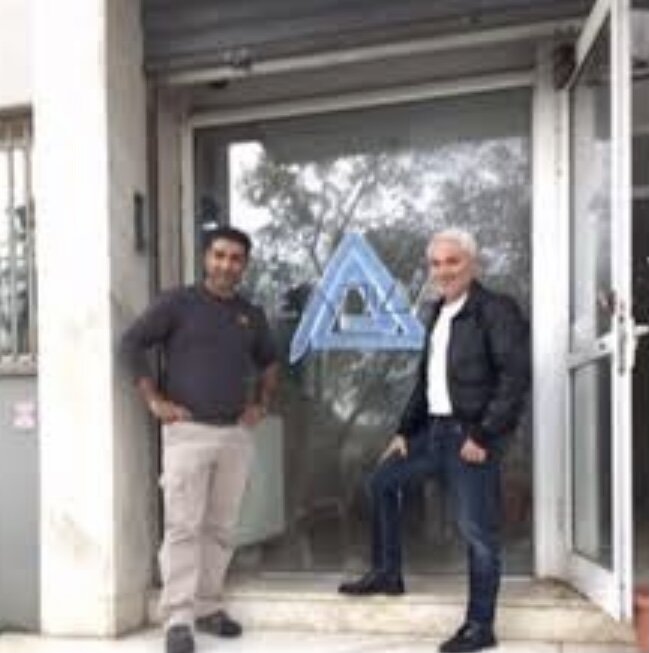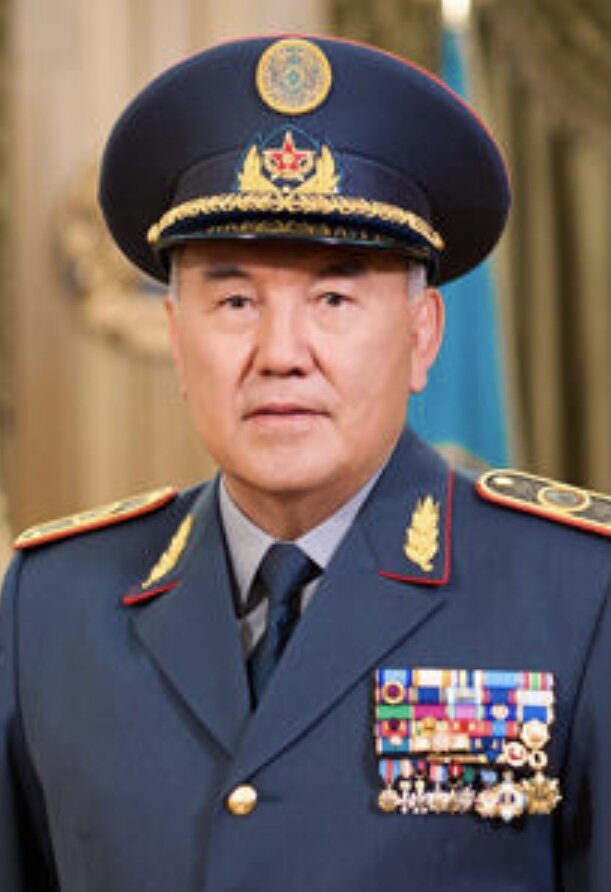We once again explore patterns on display by the people who have been entrusted to protect public welfare.
Giustra had his eye on three mines several hundred miles from Almaty. The deal was obscure from the start: the mining concessions were transferred to mysterious offshore entities including Jeffcott Group Ltd., which was registered in the British Virgin Islands. Giustra and others involved in the venture later claimed they didn't even know who actually owned the mysterious entity. "We dealt with corporations and entities that had title to the assets," said Chris Sattler, executive vice president of corporate development and investor relations of Uranium One (of which UrAsia Energy would soon become part).
“In fact, we dealt with their representatives.... Therefore, we have no knowledge of the beneficiaries or shareholders behind Jeffcott." On other occasions, Frank Giustra claims to have known precisely whom he was dealing with in the transaction.
Clinton's itinerary included a lavish private feast with the Kazakh dictator, as well as a public press conference. For the former president it was a reunion of sorts. Clinton and Nazarbayev had first met back in 1994, when the Kazakh autocrat came to Washington to meet the new president.
The two discussed several topics and signed a Charter on Democratic Partnership, "which recognized Kazakhstan's commitments to the rule of law, respect for human rights, and economic reform." Nazarbayev had a habit of signing documents be had no intention of honoring. Clinton and Nazarbayev met again in December 1999, when they discussed a number of issues, one of which likely included concerns involving two mining and metal companies that were having troubles in Kazakhstan. A Canadian firm, World Wide Minerals, and a London-based firm, Trans-World Metals, had seen property confiscated by the Kazakh government.
The September 2005 visit had been organized in part by Sergei Kurzin, a round-faced Russian nuclear physicist from Siberia who had done business in Kazakhstan before. In addition to arranging the meeting in Almaty, he assisted Giustra in creating UrAsia Energy. It's unclear if Kurzin and Clinton had met before, but they would have several more meetings in the years that followed. And they had something else in common: fugitive financier Mare Rich. Recall that in January 2001, on his last day in office, Clinton had issued a presidential pardon for Rich. Kurzin had previously worked for Rich traveling around Russia in search of suitable investment opportunities.
Kurzin, in a 2008 interview with New York Times reporters Jo Becker and Don Van Natta, said about the visit, "timing was everything," After the Times piece ran, Kurzin reported getting an angry phone call from Giustra. The secretive Canadian "yelled like hell at me over the phone after he saw the piece," Kurzin said later. "He was furious that I talked to a journalist." What transpired at dinner with Clinton, Nazarbayev, and Giustra depends on whom you ask.
It was by all accounts a lavish affair, with upward of seventy-five guests. Bill maintained that the entire visit was about dealing with HIVAIDS in Kazakhstan. Giustra insisted that the mining deal he wanted to secure did not involve Nazarbayev or the Kazakh government. As he put it, "The mining agreements I reached in Kazakhstan were concluded after lengthy negotiations with private companies-not the Kazakhstan government.
Giustra in front of a door relating to his philanthropic work.
Bill has gone even further, claiming that "formal endorsement from the Kazakh government was not required to acquire the assets." He went on to make a technical legal argument: "Kazatomprom was not a signatory to either of the memorandums of understanding signed by Mr. Giustra's company.” But these were, at best, elaborate evasions. Corporate executives for the uranium company later admitted to journalists and US diplomats that Kazakh officials absolutely needed to sign off on the deal.
Jean Nortier, CEO of the company that would eventually control the assets, said, "When you do a transaction in Kazakhstan, you need the government's approval. UrAsia got the approval, and when UrAsia merged with Uranium One, that approval was given again."
Leaked State Department cubles from the US ambassador in Kazakhstan further refute Bill Clinton's claim. Giustra acquired the assets in Kazakhstan through his shell company UrAsia Energy and then transferred those assets through a merger with a company called Uranium One.
According to a 2009 US diplomatic cable revealed by WikiLeaks, Paul Lewis Clarke, senior vice president of Uranium One, claimed, that Uranium One's UrAsia acquisitions "were approved by many of the same people still in power," including the then prime minister Danial Akhmetov (who later became minister of defense), and "Kazatomprom president [Vladimir] Shkolnik, then the Minister of Energy and Mineral Resources. Any asset transfer of uranium rights needed to be approved by Kazakh officials."
A key Kazakh official involved in the deal was Mukhtar Dzhakishev, the president of Kazatomprom, the government agency that runs Kazakhstan's uranium and nuclear energy industry. A technocrat with pro-Western sympathies, Dzhakishev was eager to do business with the United States and would later visit Clinton in 2007 at his home in New York.
According to Dzhakishev, the uranium deal came up in discussions that night at the banquet. Clinton and Giustra dispute this. But more than that, suggestions have been made that Dzhakishev and other Kazakh officials had already been under for months to close the deal and grant the lucrative uranium concessions to Giustra.
For reasons that remain unclear, approval was being held up on the Kazakh end. Giustra was understandably anxious and may have asked Bill to intervene.
In a 2009 video of a statement to authorities on an unrelated matter, Dzhakishev claimed that then senator Hillary Clinton pressured Kazakh officials to secure the deal for the Canadians. According to Dzhakishev, Kazakh prime minister Karim Massimov "was in America and needed to meet with Hillary Clinton but this meeting was cancelled. And they said that those investors connected with the Clintons who were working in Kazakhstan have problems. Until Kazakhstan solved those problems, there would be no meeting, and all manner of measures would be taken."
Massimov returned to his country and called Dzhakishev and told him to work it out. Dzhakishev then claims he was contacted by Tim Phillips, an adviser to Bill. According to Dzhakishev, Phillips told him that there would be no further meetings with Hillary until Kazakh officials approved Giustra's uranium deal. Dzbakishev was certainly in a position to know.
He played a central role in the Giustra uranium deal. He was among the first Giustra met in Kazakhstan to discuss it. Some time later he met with Bill Clinton at his home in Chappaqua, New York, to discuss the broader uranium market in Kazakhstan."
The Podesta emails are full of preoccupations about sustainability.
The alleged threat to withhold American aid would not have been perceived as an idle one. The Kazakhs received large sums of money from the US government as part of a post-Cold War nonproliferation program. (In 2011, for example, they received $110 million for "combatting weapons of mass destruction.") At that time, Hillary sat on the powerful Senate Armed Services Committee. More specifically, she sat on the Subcommittee on Emerging Threats and Capabilities. Hillary's subcommittee had responsibility for oversight of nonproliferation programs.
When sustainability and health solutions are forced on a vulnerable public, it becomes vital to examine the morality and credibility of the source of that massive monied pressure.
…
Dzhakishev also claimed that Phillips "began to scream" at him that it was important to get the deal done for "Democrats" involved in it." Dzhakishev says he took Phillips to see Kazakh officials, including assistant to the president Karim Massimov, who later became prime minister.
When Phillips was asked by the Washington Post about Dzhakishev's account, he didn't respond. He has, however, changed his online résumé and has removed any references to having been a Clinton Foundation fundraiser.
Meanwhile, Bill gave Nazarbayey the international credibility he craved. Standing before the gathered media in front of a large gold-inlaid national seal of Kazakhstan, Bill Clinton took the podium with a grinning Nazarbayev at his side.
Bill talked about his global AIDS work before praising Nazarbayev for "opening up the social and political life of your country." Clinton's glowing assessment was not shared by anyone in the human rights community. Indeed, Robert Herman, who worked for the Clinton State Department in the 1990s and later joined the nonprofit Freedom House, called the statement "patently absurd. Certainly the US State Department would not agree with Clinton's fawning praise. For years, it had categorically stated that Kazakhstan had failed to significantly improve its human rights record.”
As the international media recorded his words, Bill also came out publicly in support of Nazarbayev's bid to have his country head the prestigious Organization for Security and Cooperation in Europe (OSCE). "I think it's time for that to happen, it's an important step, and I'm glad you're willing to undertake it," he said.
Nazarbayev
Nazarbayev quickly issued a press release proudly claiming support from Clinton. The ex-president neither refuted nor challenged Nazarbayev's public relations victory lap. Clinton's endorsement was remarkably audacious.
The OSCE was primarily a human rights organization, formed as a result of the 1975 Helsinki Accords. The international body held little power, but it was an honor Nazarbayev sought. Putting Nazarbayev's Kazakhstan at the helm of the OSCE was like putting Iran in charge of the International Atomic Energy Agency. It made no sense. Still, it would be a prestigious appointment for the dictator.







